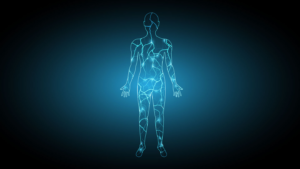Deja Vu: An Overview
Have you ever experienced an eerie sense of familiarity in a situation that you’ve never been to before? This strange and often unexplainable sensation is called “deja vu”. People of all ages can experience it, but it is more commonly reported in individuals between the ages of 16 and 55. Deja vu experiences typically last for just a few seconds, but can be intense enough to leave a lasting impression on the mind. In this blog post, we will dive into the meaning of deja vu, the different types of deja vu, the common causes of this phenomenon, what people experience during a deja vu episode, the potential health implications of experiencing deja vu often, and other related topics.

What is the Meaning of Deja Vu?
The term “deja vu” is French for “already seen”. As stated above, it is a phenomenon where a person experiences a sense of familiarity in a new situation without any known explanation. Some people describe it as a feeling of having lived through a specific moment or event before. Often, the details of the situation seem familiar, even though the person cannot recall any previous experience or memories associated with it. The experience can feel like a dream or a false memory.
The Different Types of Deja Vu
There are two main types of deja vu: Associative deja vu and Biological deja vu.
Associative deja vu:
Associative deja vu is the most common type of deja vu. It occurs when a person experiences a similar situation or something that they once saw or heard, and it triggers a sense of recognition and familiarity in their mind. Basically, the brain recognizes a familiar situation and mistakenly registers it as something that has been experienced before, leading to a sense of deja vu.
Biological deja vu:
Biological deja vu is the second type, and it occurs when the brain experiences a “misfiring” in the temporal lobe. The temporal lobe is responsible for processing long-term memories, and when there is a glitch in this process, it can cause a memory to be stored twice. This can lead to the feeling of having a memory of something that has never happened before.

The Causes of Deja Vu
The causes of deja vu are not fully understood, but there are several theories on what might be causing it. One theory suggests that deja vu is related to our brain’s ability to recognize familiar patterns. Another theory suggests that it is a type of “memory check,” which allows us to compare our current experiences with previous ones, helping us to recognize when something is out of the ordinary. Some researchers believe that it could be caused by having a higher than usual level of active neural connections in the brain, leading to a mix-up in the way information is processed. Deja vu can also be triggered by external factors such as stress, anxiety disorders, sleep deprivation, or even drug use.
What People Experience During a Deja Vu Experience
A typical deja vu experience lasts for just a few seconds, but during that time, several things can happen. The person may feel a sense of familiarity with their surroundings, even if they have never been there before. They may also experience a feeling of being “outside of time”, as if they have been transported back to a time when they previously experienced that same situation. Some people report feeling a sort of mental “glitch” or hiccup in their consciousness during a deja vu episode.
The Health Implications of Deja Vu
There is no clear evidence that experiencing deja vu is a sign of any serious health problems, but some studies suggest there could be some potential links. For example, research has shown that people who experience frequent episodes of deja vu are more likely to suffer from anxiety or depression. It is also possible that certain neurological conditions such as temporal lobe epilepsy or migraines can lead to more frequent and intense episodes of deja vu. If experiencing deja vu becomes consistent or starts to impact your daily life, it is important to speak with a healthcare professional about any underlying medical conditions.
The Final Verdict
In conclusion, deja vu is a unique and often strange experience that can happen to anyone. While the actual causes behind it remain somewhat mysterious, there are several different theories on what could be at work. It’s essential to note that anyone can experience deja vu at any point in their lifetime, but it is more common amongst people aged 16 to 55. Although it is generally considered a harmless and even normal occurrence, it is still worth talking to your healthcare professional if you experience frequent and unsettling deja vu episodes. The more we learn about the nature of deja vu, the better we can understand the complexities of our brains and what they are capable of.




